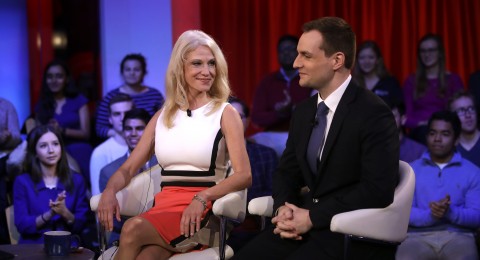The Washington Post covered a usually mundane post-election event at Harvard where the various political players of the campaigns get together to discuss what went right, what went wrong, and lessons learned.
This cycle wasn’t as mundane. The emotions are much more raw still on the losing side while the winning side lacks the decorum normally shown post-election.
I’m still amazed at the pot-shots being taken at the media in all of this. In addition to “locker room talk”, the media was accused of taking Trump literally when he was really engaging in “dinner party talk”, which apparently is when you talk out of your ass at a dinner party without any real knowledge of a subject while acting like an authority. I need to check Urban Dictionary on that one. I try to stick to sounding authoritative on things I know while being clear on things I’m assuming, guessing, or trying to recall from hazy recollection.
Of course, that was part of the beauty of the winning campaign. Provide a show that the media will report on despite lack of substance (immediately following Trump’s campaign announcement) to gain traction, then accuse the media of lying which energizes a segment of the population who is frustrated while introducing additional seeds of doubt for anything the media says. Then, anything the media says negatively about Trump is easily dismissed by the segment he’s energizing and the continued train wreck keeps him above the fold all day every day.
If media outlets actually conspired against him and agreed not to cover his campaign–or simply cover it with equal time to the other candidates–he wouldn’t have been the force he was.
Clinton’s campaign lost the election by playing the game without heart while Trump’s campaign won by lighting the game on fire, sticking it up on YouTube, and letting it go viral.
Those of us who wanted to use data to take the pulse of the election (versus thinking that a few yard signs mean anything, says the guy whose street in Texas had a dozen Clinton signs and one Trump sign) learned a good lesson that data trends change all the time. The methodologies used aren’t perfect and change because they were found lacking.
FiveThirtyEight noted one imperfection in the polling: the lack of accounting for educational differences when weighting the results, which may have resulted in the state polling numbers failing, particularly in the states assumed by many to be in Clinton’s camp.
In the end, I hope this spectacle has an end so we can focus on the impact of policies.

Leave a Reply